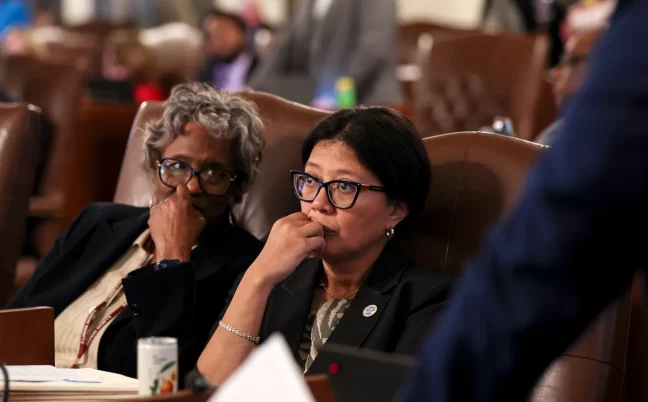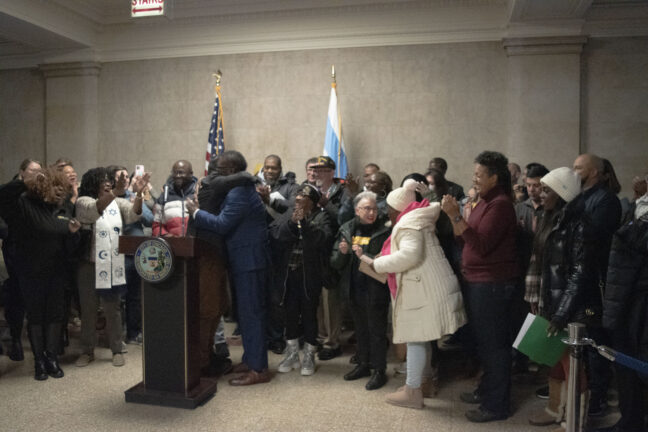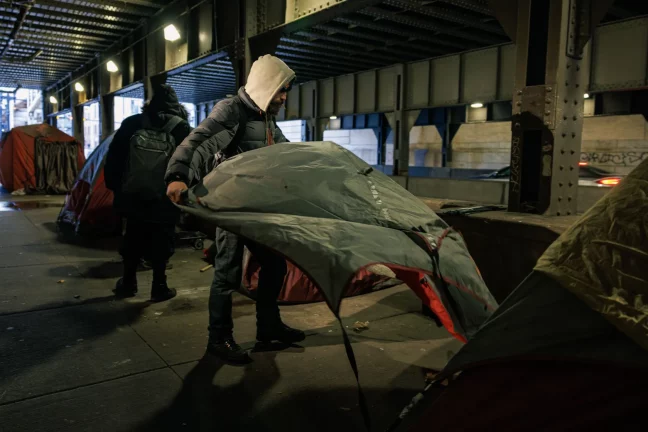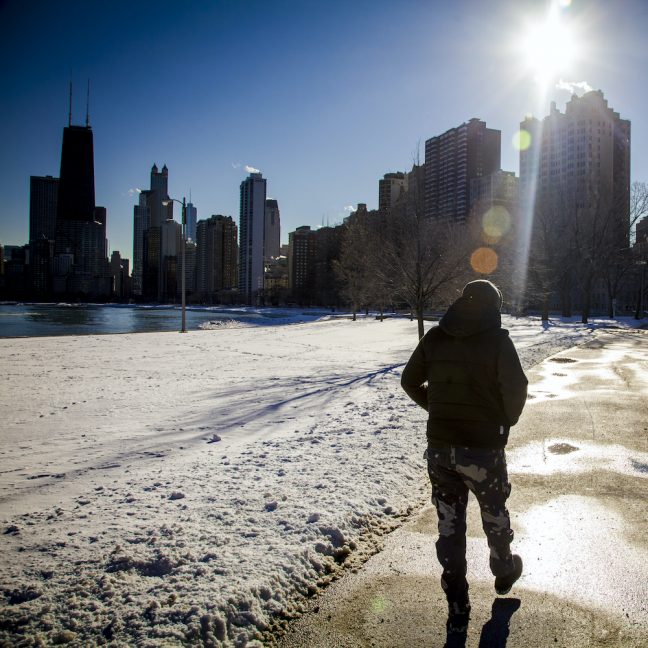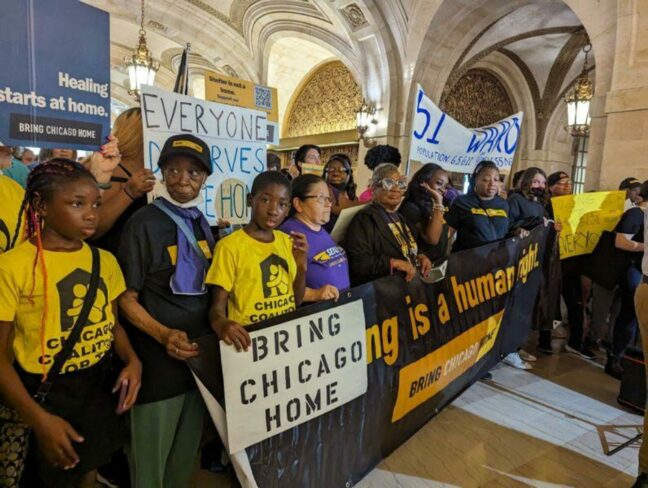By Rachel Hinton — Block Club Chicago | Nick Blumberg on February 19, 2024
In the first nine months of 2023, outreach workers had more than 5,000 interactions with people using CTA trains as shelter. Many interactions ended with people indicating they didn’t want to talk further.
The program “got the ball rolling in the right direction,” said Ali Simmons, a senior case and outreach worker in the Chicago Coalition for the Homeless’ Law Project.
But he cautioned that addressing homelessness more broadly is “definitely going to take a lot more outreach, primarily because of the … magnitude of the problem.” The nonprofit Chicago Coalition for the Homeless puts the number over 68,000. That includes people who are “doubled up,” living in the homes of family or friends.
Simmons’ organization, the Chicago Coalition for the Homeless, is leading the effort to pass the ballot initiative Bring Chicago Home. Without more funds dedicated to addressing homelessness, “it’s like we’re going through the same thing each and every year,” Simmons said.

